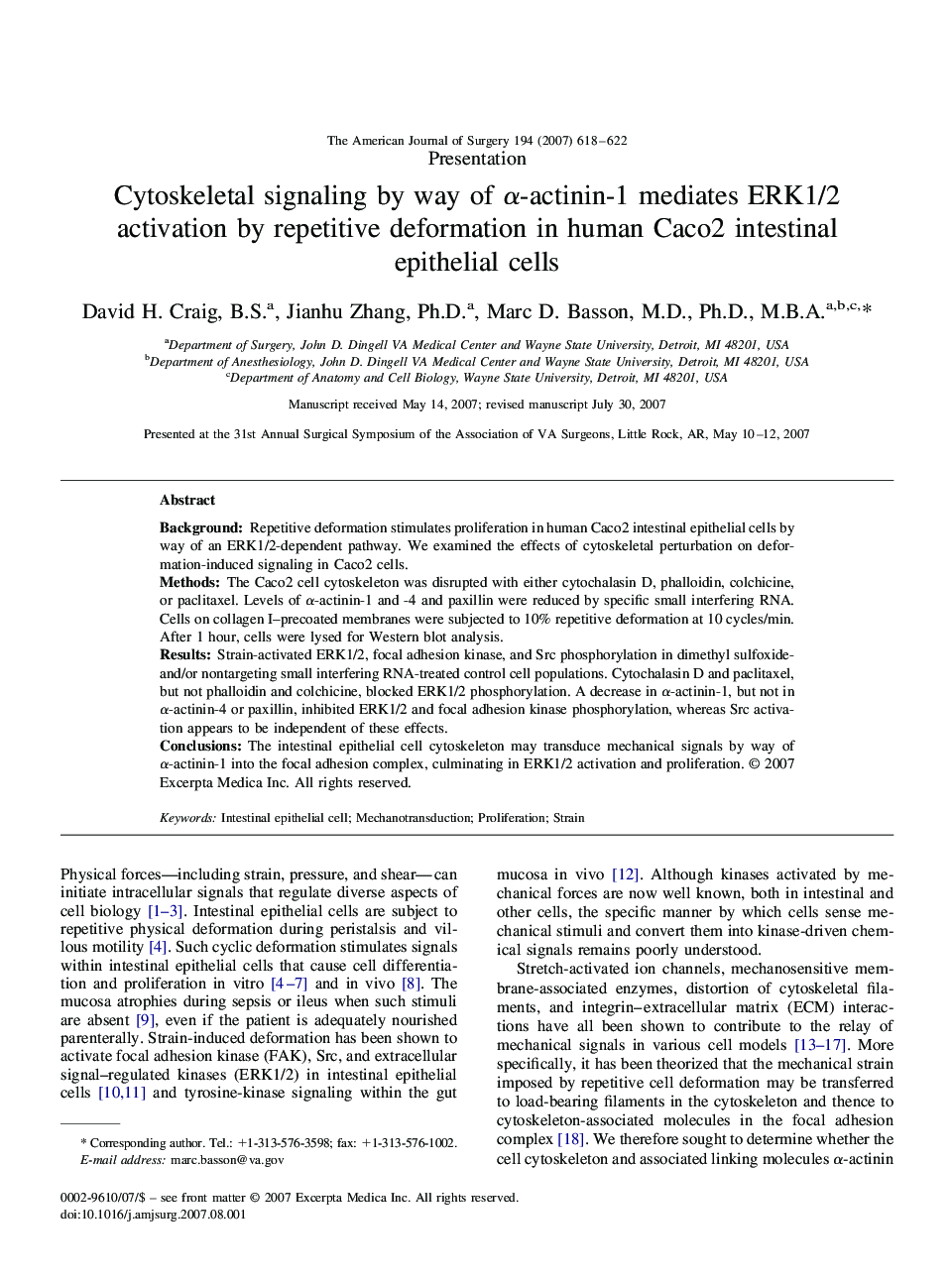| Article ID | Journal | Published Year | Pages | File Type |
|---|---|---|---|---|
| 4281962 | The American Journal of Surgery | 2007 | 5 Pages |
BackgroundRepetitive deformation stimulates proliferation in human Caco2 intestinal epithelial cells by way of an ERK1/2-dependent pathway. We examined the effects of cytoskeletal perturbation on deformation-induced signaling in Caco2 cells.MethodsThe Caco2 cell cytoskeleton was disrupted with either cytochalasin D, phalloidin, colchicine, or paclitaxel. Levels of α-actinin-1 and -4 and paxillin were reduced by specific small interfering RNA. Cells on collagen I–precoated membranes were subjected to 10% repetitive deformation at 10 cycles/min. After 1 hour, cells were lysed for Western blot analysis.ResultsStrain-activated ERK1/2, focal adhesion kinase, and Src phosphorylation in dimethyl sulfoxide- and/or nontargeting small interfering RNA-treated control cell populations. Cytochalasin D and paclitaxel, but not phalloidin and colchicine, blocked ERK1/2 phosphorylation. A decrease in α-actinin-1, but not in α-actinin-4 or paxillin, inhibited ERK1/2 and focal adhesion kinase phosphorylation, whereas Src activation appears to be independent of these effects.ConclusionsThe intestinal epithelial cell cytoskeleton may transduce mechanical signals by way of α-actinin-1 into the focal adhesion complex, culminating in ERK1/2 activation and proliferation.
